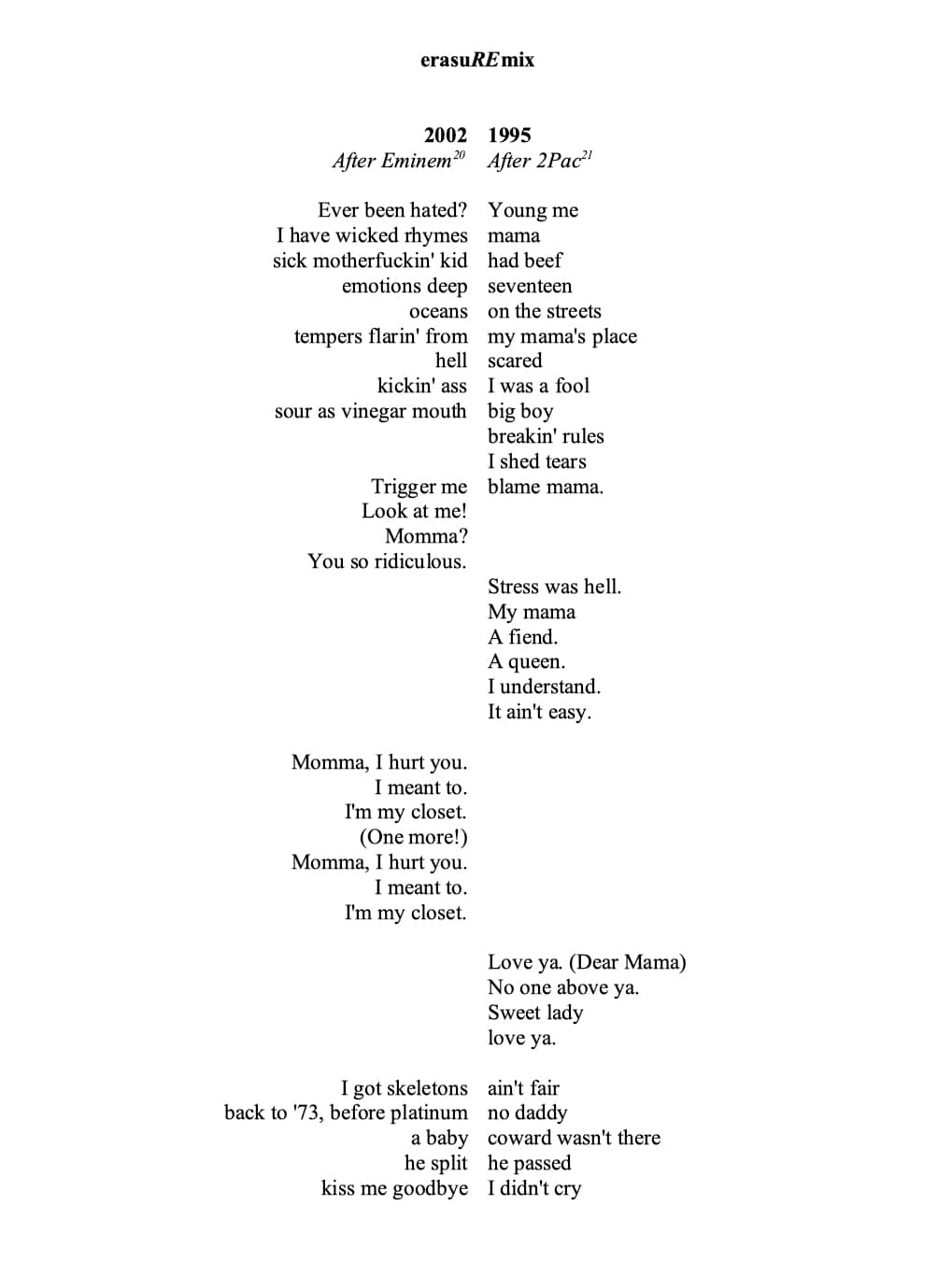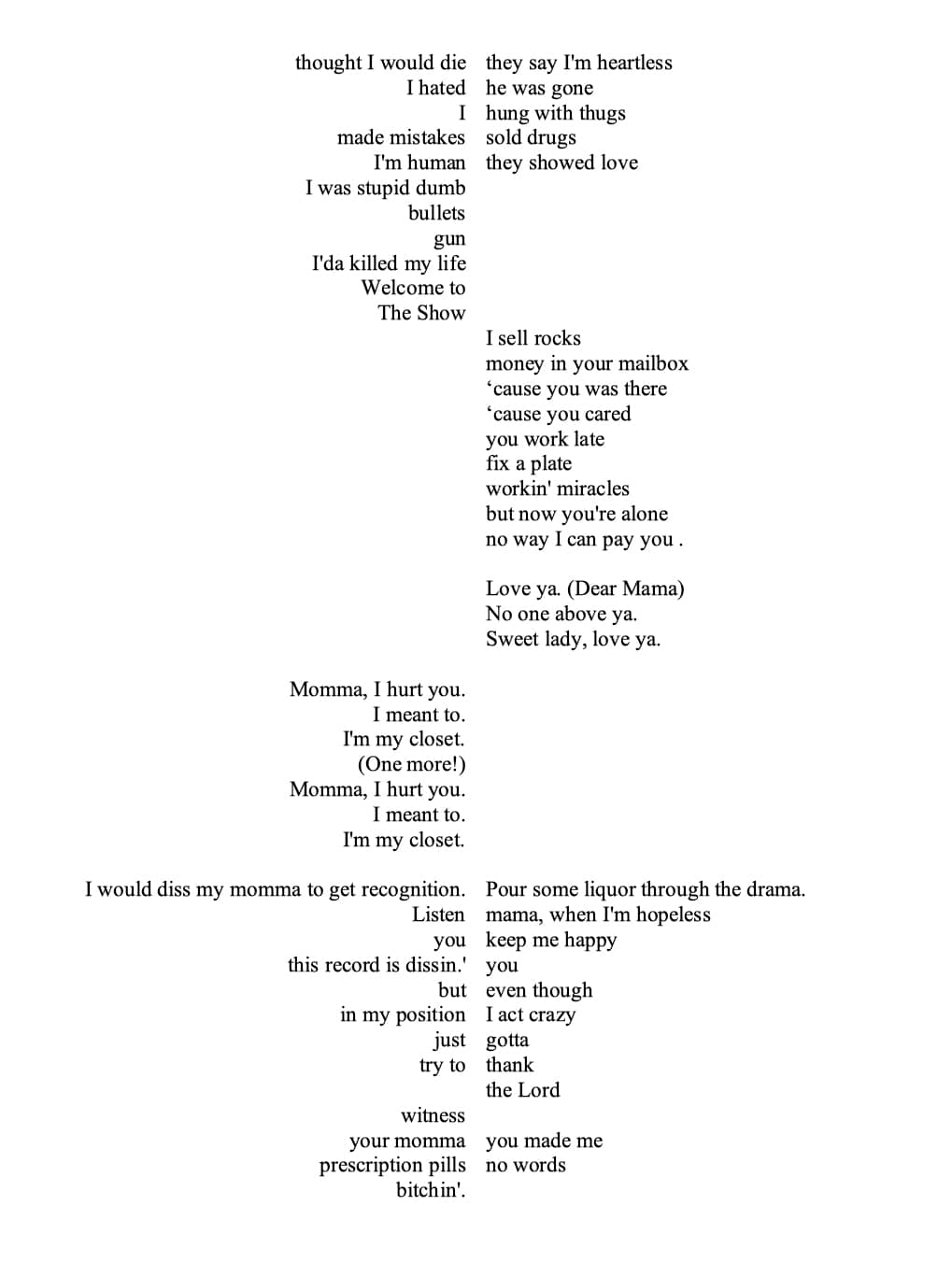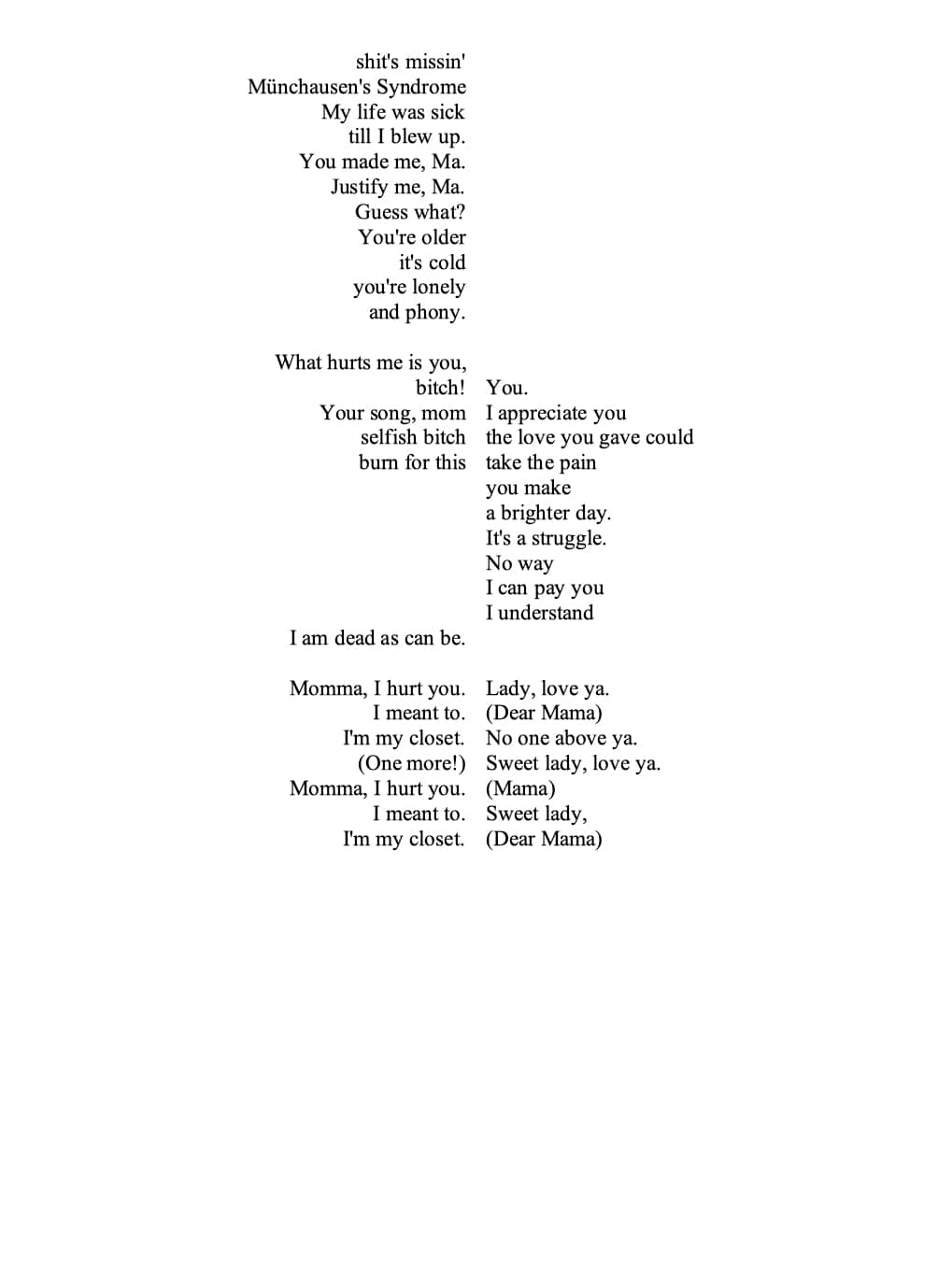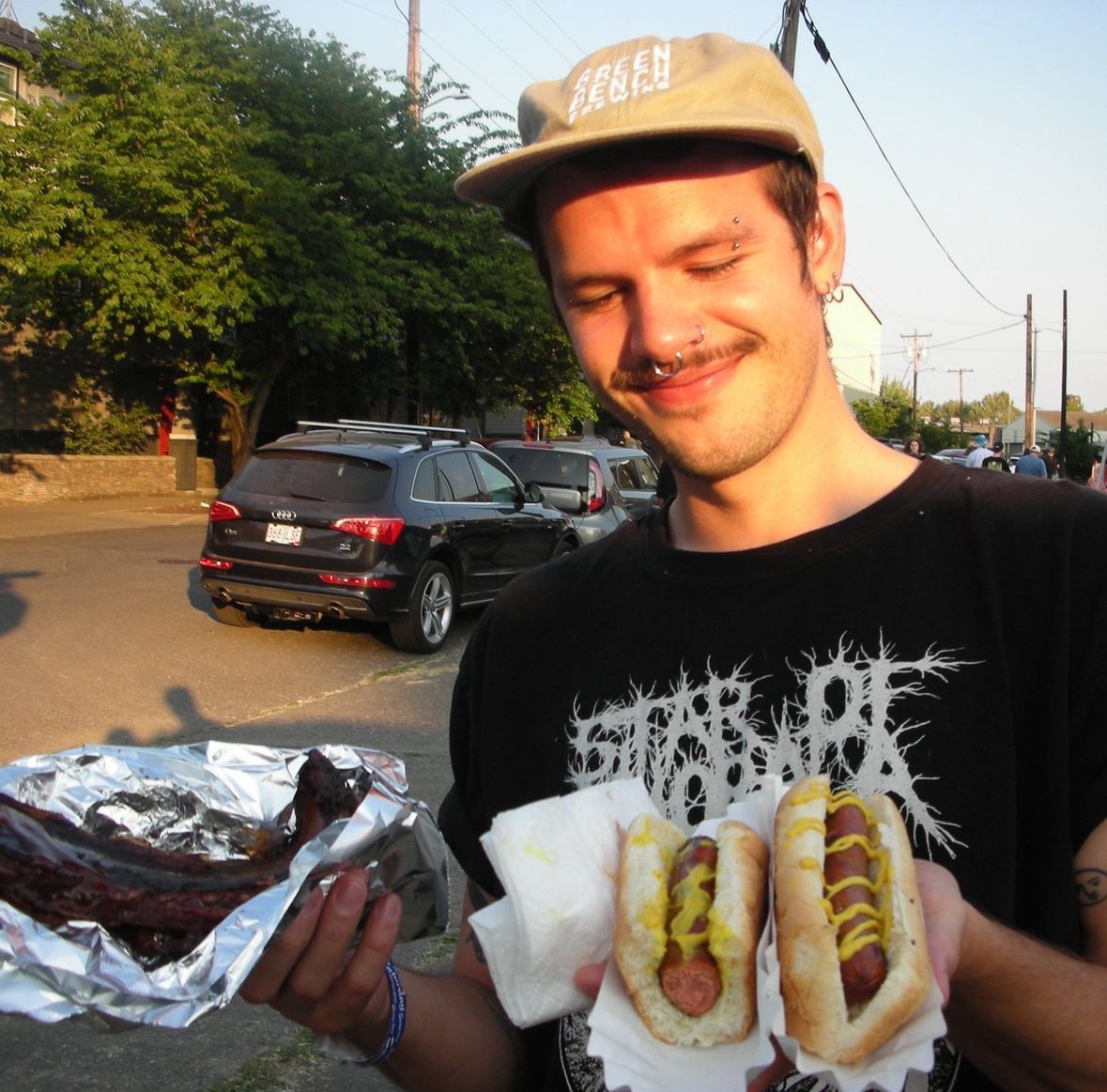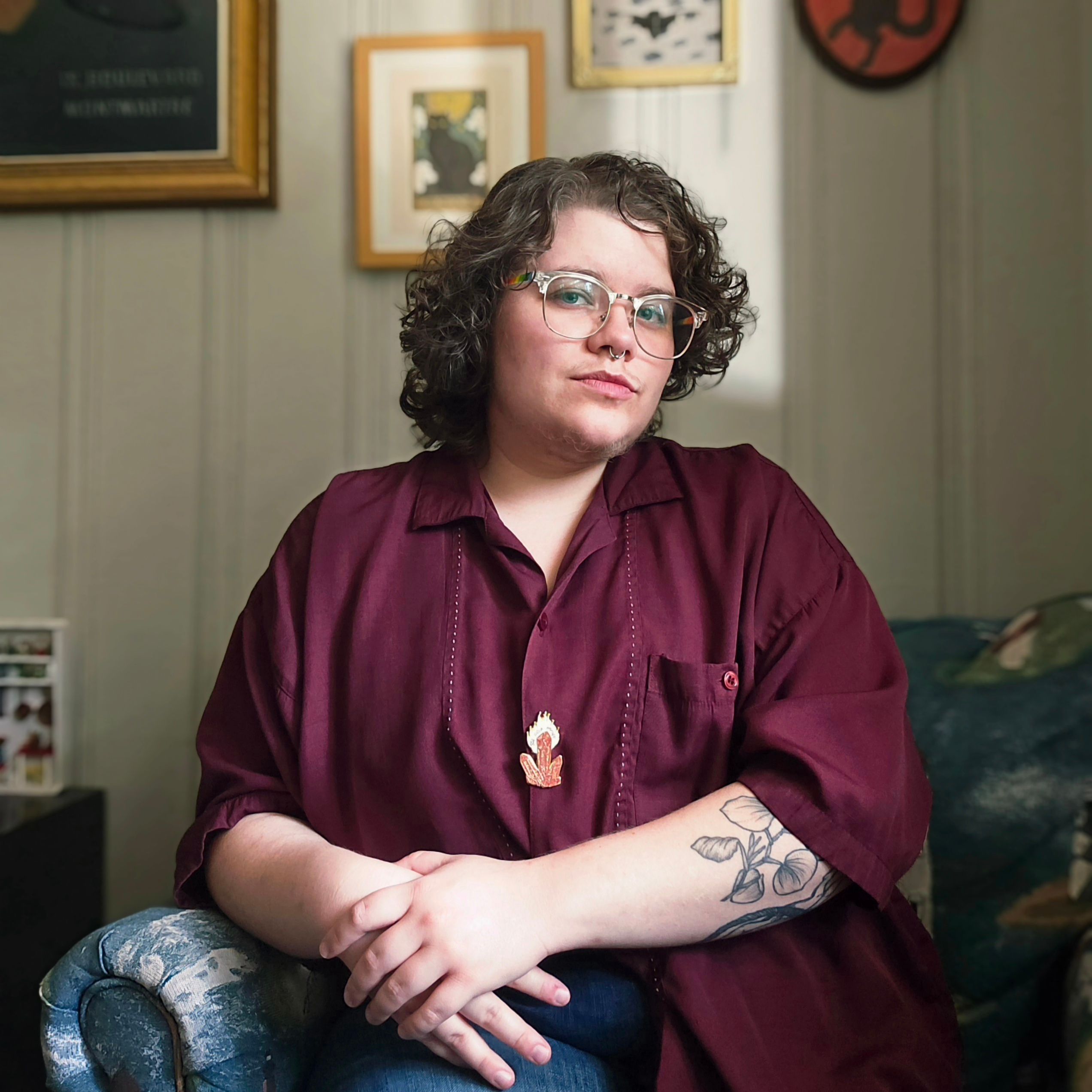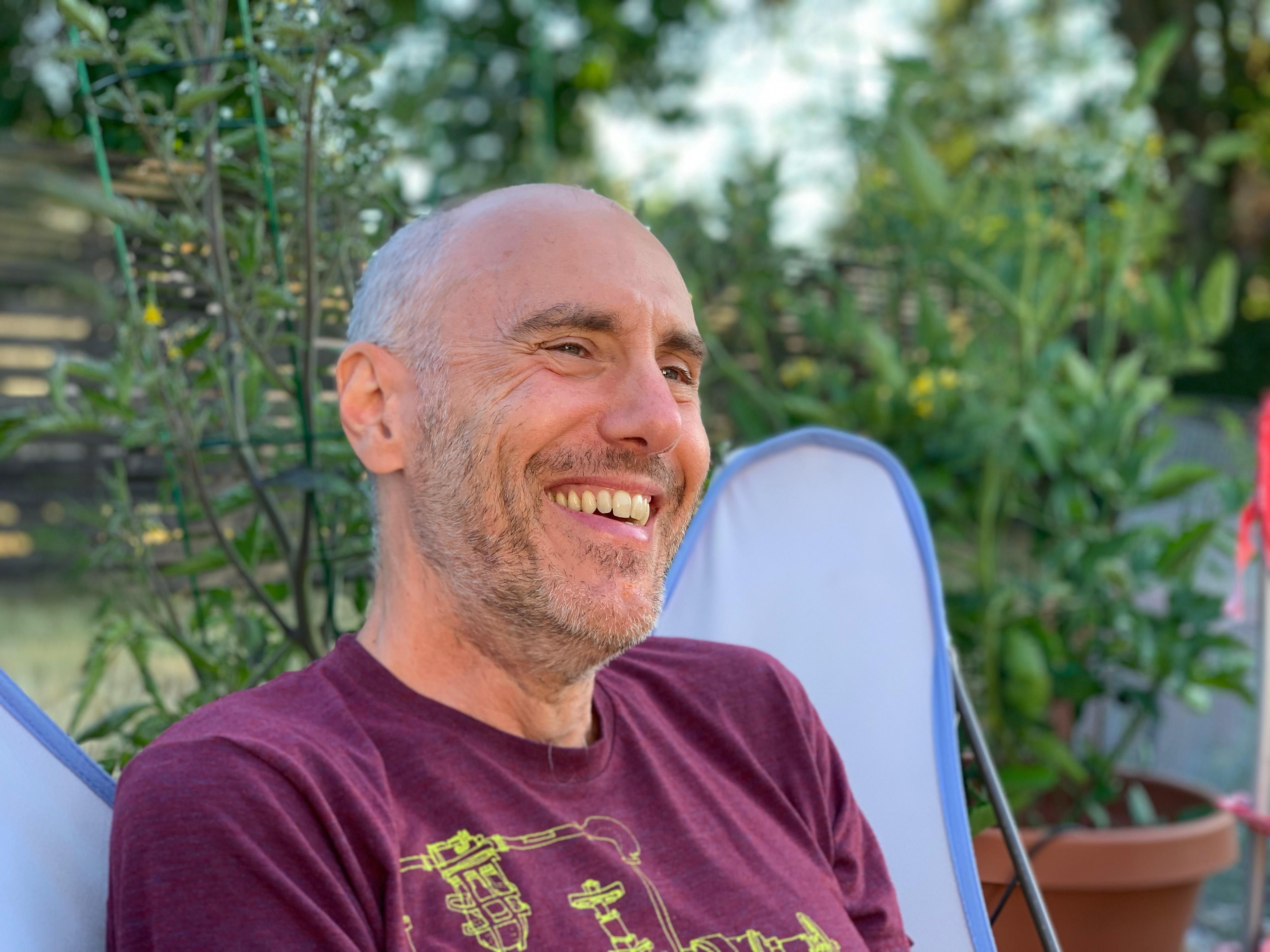Here, the surf suggests itself to me. A yacht pouts in the distance,
the world says blue with its whole mouth, never afraid of its
own unsecreting. It is comforting to do the expected in unusual
circumstances. It is why I reach for your body when I go to bed,
why I search for pods of the flame tree on the side streets by the
church. When they dry out the seeds murmur inside like a maraca,
hisses smooth themselves through the slit of its mouth. When I
feel like my heart could do what it wants to do, even that is a new
sensation. The French don’t say I miss you, they say You are a lack
for me, where the I is not the subject. The pods are missing of me,
the ocean is a covering for the flesh when I am in it. A shibboleth is
both an ear of grain and a stream. In my dream you wrote to me in
the dust among the bric-à-brac. I waited so long to look that when I
did it was wiped clean. What did you say? Around here I like to say,
Time mushrooms! – a line I misheard from a movie that turns out to be
true – hemorrhaged pillow tumbling upon a faraway land. When I say
long dead childhood pet it sounds like long dead child, which sounds like the
silent parachutes of the silk floss resolving. I say, Tu peux me tutoyer –
you can call me in the familiar, but I write, Tu peux me téter by mistake,
which means You can suck me. To be true does not mean to be right.
I don’t know if to have a lack is to own it or live in it, but the word
sounds like a wound, a thing you surrender to. Stilt roots scribble up
the air, little hands signing like they are saying blow over but I think
they say blow up. When I ask you, you say it said forever. Since we don’t
know, let’s call it anything, let’s call a plank a passage. When we furl
our tiny sails into their casing, why not call that conquering? I don’t
like the ending, I say, but I mean I don’t like that it ends. I won’t
explain, I can’t -- time is already a cascade of smoke and vapor.
How can I anyway (this drumming in me) without the I, or you.
Michelle Lewis
Author
Michelle is the recipient of the 2018 Marystina Santiestevan First Book Prize chosen by Bob Hicok. She is the author of Animul/Flame (Conduit Books & Ephemera), and two chapbooks, Who Will Be Frenchy? (dancing girl press) and The Desire Line (Moon Pie Press). Her poetry has appeared in Bennington Review, Indiana Review, Denver Quarterly, and Copper Nickel, among others. Her essays and reviews can be found in journals such as Gettysburg Review, Rain Taxi, Electric Lit, and Anomaly. She lives in Maine.

